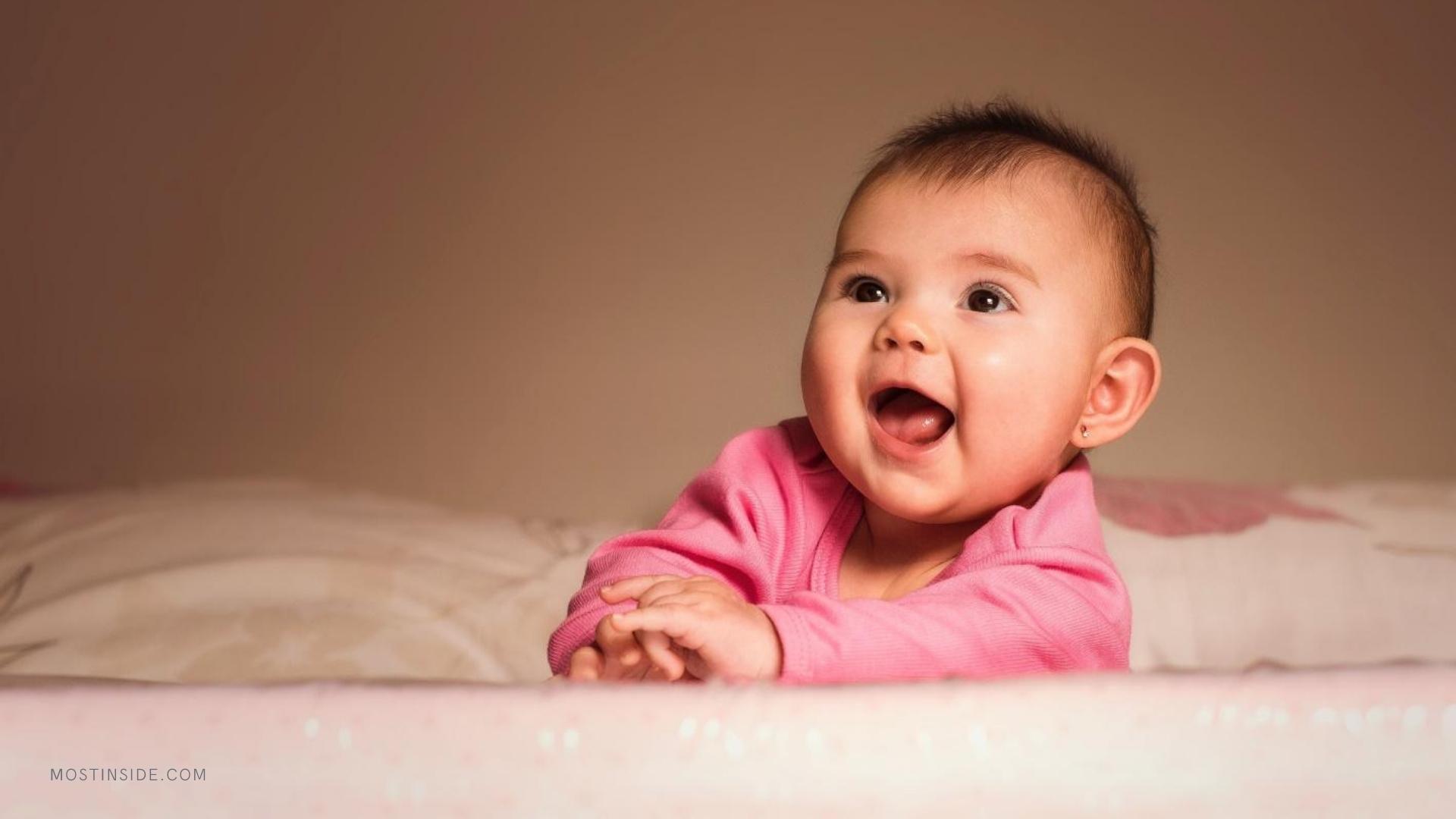6 Signs of a Healthy Baby
This post was last updated on February 14th, 2024

As you welcome your newborn, you are so happy and ready to create lovely memories with your bundle of joy. But as soon as you take your baby home, the only thought lingering in your head is, “Is my baby healthy? How will I know if he is or isn’t?”
You are not familiar with your baby’s behavior yet, and every cry of your baby will sound new to you, and you will wonder if it’s a normal cry or if the baby is sick.
Even though your baby can’t communicate clearly yet, there are some signs that you can observe to ensure that your baby is happy and healthy.
This article points out six signs of a healthy baby to guide new and expectant parents.
1. Gaining Weight
In the first six months, your baby will grow faster. Ensure to get regular weigh-ins of your baby. The doctor will examine your baby’s height, weight, and temperature to ensure that they are healthy. If your baby, at five months old, weighs twice his birth weight and within a year he weighs three times his birth weight, he is growing healthily.
You must consult your doctor about your baby’s ideal height and weight. Every delivery and every baby is different. Unfortunately, babies sometimes suffer birth injuries that affect their brain functioning and hinder their growth and development. For example, babies often suffer from cerebral palsy because of medical malpractice. This alters their weight gain, muscle strength, etc., and overall they require extra medical attention. You can learn more about this in a Cerebral Palsy Guide to give your child the best treatment and future despite their condition.
2. Responsive to Sights and Sounds
If your baby is becoming more responsive and attentive to different sights and sounds, it indicates a healthy growing baby. According to the American Optometric Association, babies don’t have 20/20 vision when they are born. Instead, they learn to see. It takes a while for them to train their eyes.
When a baby is two months old, their eyes start focusing better, and at that time, your baby will be able to recognize you by your facial expressions. And after three months, the baby can better focus on objects and even track moving objects.
Similarly, with hearing, even though the baby was able to hear your voice while they were in your womb, the world sounds different outside your belly, and your baby will need some time to adjust to it. You will notice that when the baby is two or three months old, they turn their head around when you call them or when they hear a loud or a new sound.
3. Wetting 4 to 6 Diapers Daily
The number of times you change your baby’s diaper is a sure indicator of their health. On average, a baby wets 4 to 6 diapers daily, whether you breastfeed them or use formula milk. Wetting four to six diapers is a sign that your infant is eating well, is not dehydrated, and has a good digestive system.
Babies start to gain weight after one week of being born, but if they are not well-fed, they will not gain a substantial amount of weight, and all this is detectable when there are fewer wet diapers daily. Fewer wet diapers mean the baby is not getting enough nutrition, hence why also not gaining weight. Also, if the urine in the baby’s diaper is dark-colored, this means the baby is not hydrated.
4. Baby Can Support Their Head
The muscles in newborns are very weak and take some time to develop and strengthen. This is why your baby will not be able to support their weight and lift their heads as much in the beginning. But as time passes, their muscles start to grow and gain more strength; as a result, they can support and lift their heads and move around.
When a baby is one month old, they start to lift their head, even if only for a brief moment. By the time the baby is three months old, they start holding their head up well and can even shift while they are in your arms.
5. Sleeping Well
Good sleep is an indication of good growth. As the baby is growing up healthily, they start to sleep better and also for a relatively long time. But it takes some time for babies to get into a sleeping routine. In the beginning, their sleep is often disrupted by wakefulness, but as their nervous systems slowly develop, they can sleep for longer intervals, especially at night.
Also, as a baby’s neurological system develops, they can establish sleep schedules. If the baby sleeps better, then they are healthy and happy.
6. Making Eye Contact and Smiling
When babies are one month old, they can make eye contact with you, and by the time they turn two months old, they will start grinning and smiling. Most babies start to chuckle out loud when they are four months old.
By the time they are five months old, they will start smiling back at you. These indicate that the baby is healthy since they are normally becoming more aware of their surroundings and are developing a stronger bond with you. Your baby understands that when they smile and make eye contact, others will interact with them.
Conclusion
As new parents, the baby’s health is your biggest concern. Even a minor change in the baby’s movements or cries makes you think that the baby is not fine. You can look for these six signs, and rest assured that your baby is in good health if these things are present.
Recommended For You
Good Advice For Getting Great Sleep
Most Inside
Most Inside offers high-quality recommendations and valuable updates to enhance all aspects of your life, providing premium guidance and enriching experiences.




